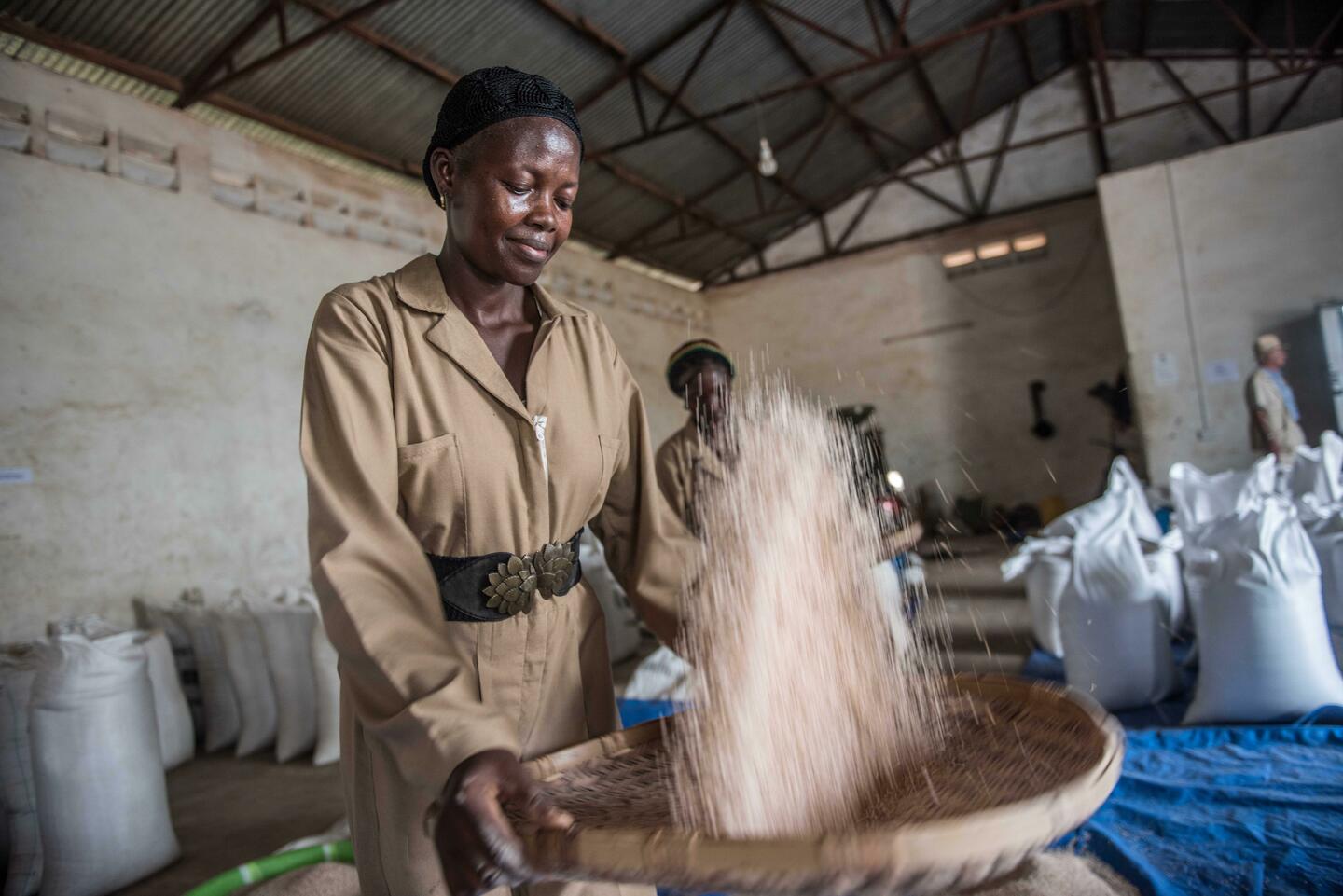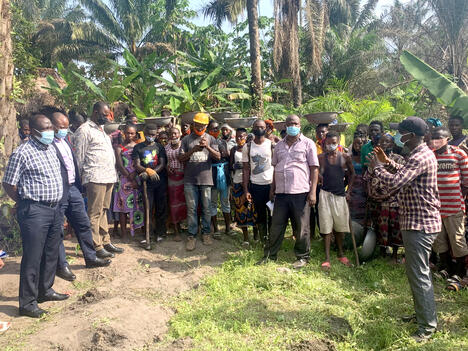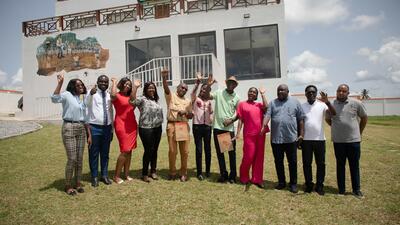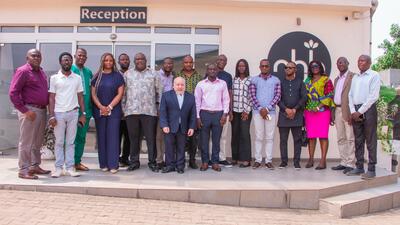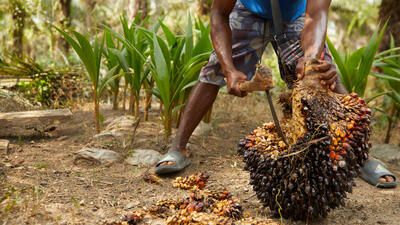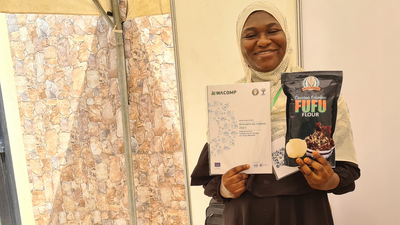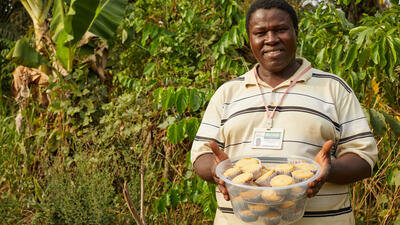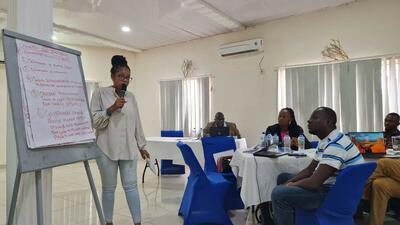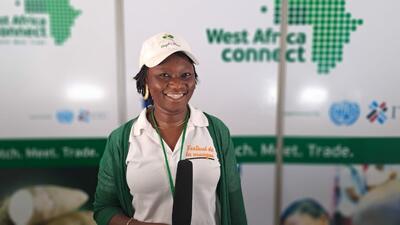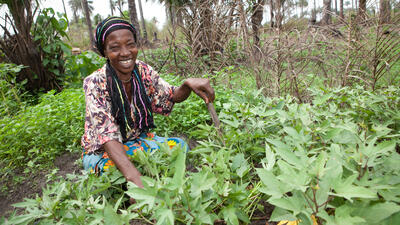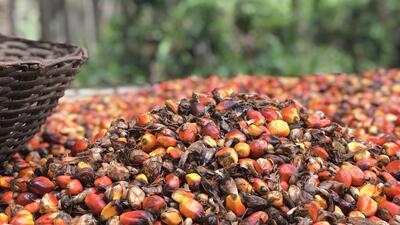
Promoting a green economy in Sierra Leone
Nature-dependent sectors, including agriculture, energy, water, mining and tourism, are crucial to Sierra Leone for realizing the United Nations Sustainable Development Goals and the country’s development targets.
Goal 1 of the country’s Medium-Term National Development Plan (2019-2023) reflects this by declaring ‘A diversified, resilient green economy.’ The UN Country Team is partnering with the government to accomplish this goal by sustainably managing the country’s diverse natural resources in tandem with economic growth.
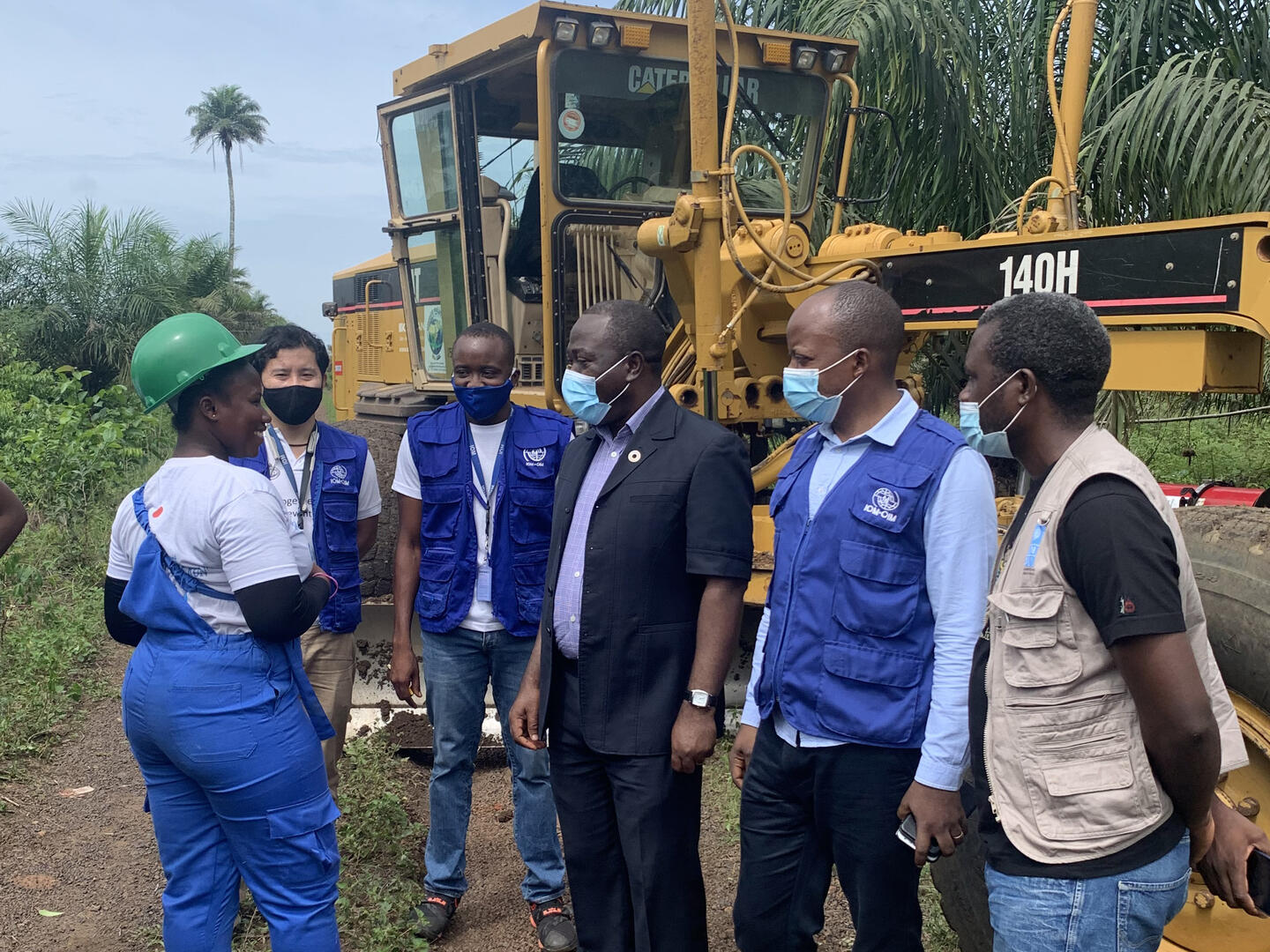
Outcome Area 1 of the UN Sustainable Development Cooperation Framework (2020-2023) focuses on sustainable agriculture, an important driver of economic growth. Since the end of the civil conflict in 2002, Sierra Leone’s agriculture sector has grown by an average of 7% per annum. In 2020, the share of agriculture in GDP exceeded 55%.
As the global economy emerges from COVID-19 related trade restrictions, the UN Country Team will continue to support the government and local communities to further develop green trade opportunities, especially those linked to agriculture.
Initiatives such as the Agricultural Value-Chain Development Project of the International Fund for Agricultural Development focus on increasing the volume and value of agricultural products (rice, palm oil, cocoa and vegetables) through climate-resilient production, market development, and rural infrastructure and information systems.
Agencies such as the UN Food and Agriculture Organization and World Food Programme also invest in local technologies to reduce post-harvest loss and add value to agricultural products. Support mechanisms put into place during COVID-19 assist women farmers who trade in agricultural products, especially women’s farming cooperatives and cross-border traders.
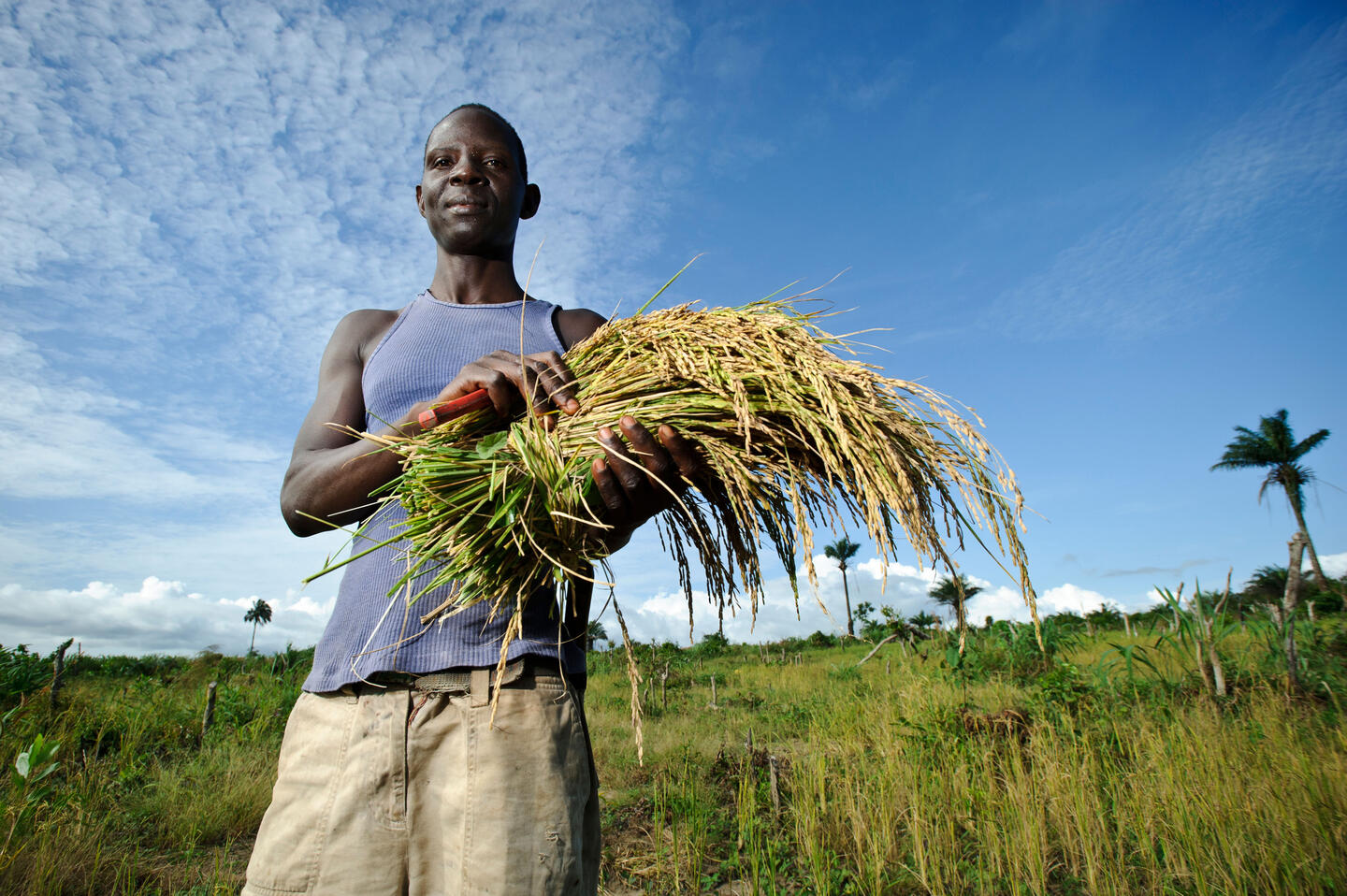
Trade as a means of implementing the 2030 Agenda for Sustainable Development, plays an important role in boosting the country’s agricultural sector. The UN Industrial Development Organization and the International Trade Centre through its West Africa Competitiveness Programme for Sierra Leone are tackling trade aspects related to quality, product diversification and export promotion to increase access to regional and international markets.
This includes training more than 40 agribusiness in the cassava, cocoa and palm oil sectors on access to finance. A financial diagnostic assessment revealed that only 20.5% of them have standard financial statements and practice acceptable financial management procedures.
Moreover, the International Trade Centre’s SheTrades West Africa project determined Sierra Leone’s trade outlook using a standard assessment tool that looks at 83 indicators across six pillars. This work engaged 21 institutions, including government, financial institutions and the private sector.
Among the six areas evaluated for the study, the country is doing relatively well in aspects such as work and society (regional/international initiatives and dialogues on gender equality), access to skills (free education until secondary level and trainings targeting women), and business environment (support services for businesses, including information on import/export requirements).
Less successful are trade policy, access to finance, and legal and regulatory frameworks. The International Trade Centre and other UN agencies, including the UN Capital Development Fund, will be focusing on enhancing these areas and increasing financial flows to the agricultural sector in the coming months.
Sierra Leone: Member of the African Continental Free Trade Area
Sierra Leone signed and ratified the African Continental Free Trade Area in 2019 to seize opportunities for South/South trade to boost international competitiveness, increase (and diversify) exports, accelerate growth and attract foreign direct investment.
The agreement will reduce tariffs and cover policy areas such as trade facilitation and services. This is an important step for Sierra Leone and the UN country team stands ready to further enhance this opportunity.
